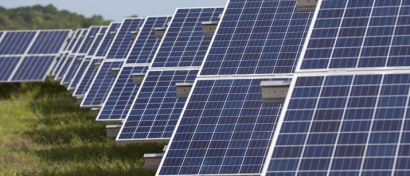
The solar mini-grid will be the country’s first privately developed and financed mini-grid, and is expected to generate up to 200kWp of solar power that will electrify the island’s households, public institutions, commercial enterprises and water pumps.
David Robinson, head of business development for CRONIMET, recently visited Chiloane Island with Joaquim Macanguisse, head of FUNAE’s Beira office, to conduct a preliminary demand assessment and to meet members of the local community.
“We’re excited to implement this electrification project on Chiloane Island” said Robinson, “It will provide reliable, 24-hour clean energy access to the community. This mini-grid will be transformative for the island’s residents and will serve as a scalable rural electrification model for Mozambique, where more than 18 million people currently have no access to electricity.”
The island is located in the East Indian Ocean and has an estimated population of 3000. Having no access to energy so far, the residents rely primarily on car batteries to meet their energy requirements. Due to this lack of electricity, the fishermen cannot produce their own ice to cool their catch sufficiently to be able to bring it to the point of sale. With the electricity produced by the solar mini-grid, island residents will be able to produce their own ice, which will have an immediate economic impact on the entire community.
CRONIMET, MOTSE and FUNAE will form a consortium to develop the mini-grid as a public private partnership. Upon successful implementation of the Chiloane Island mini-grid, the consortium expects to develop a portfolio of 60 or more mini-grids across Mozambique.

